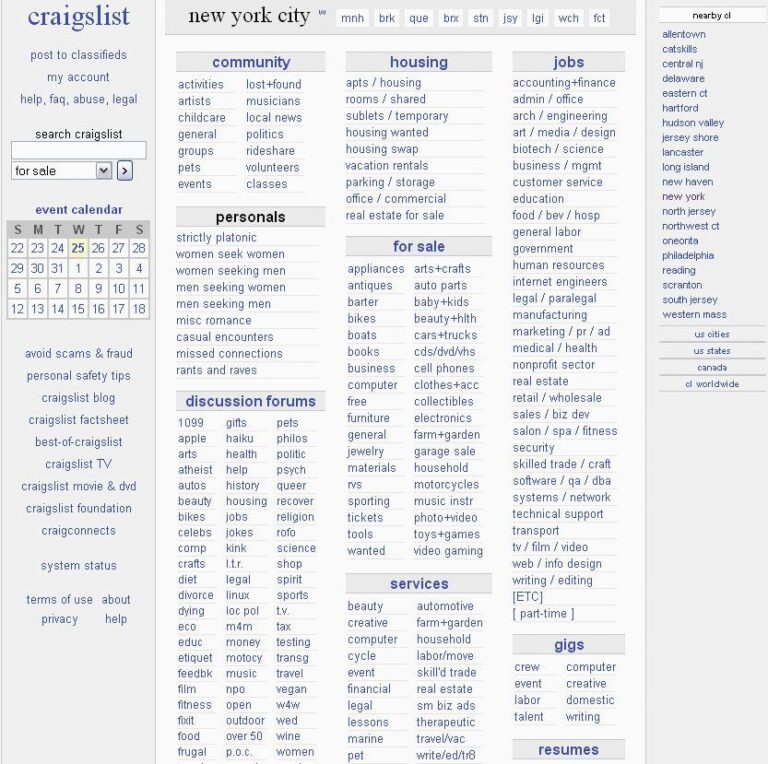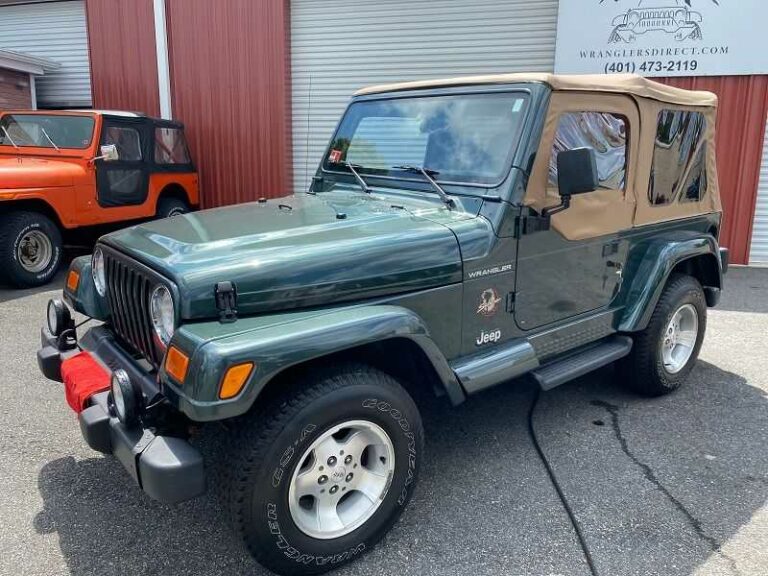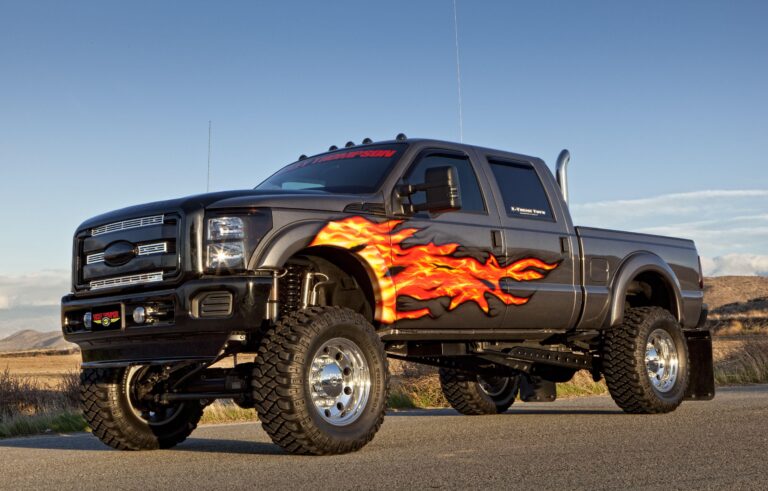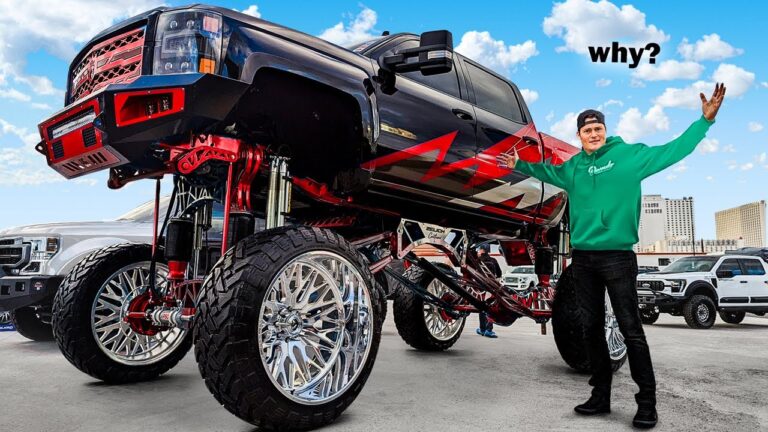Used Expedition Trucks For Sale: Your Guide to Adventure on Wheels
Used Expedition Trucks For Sale: Your Guide to Adventure on Wheels cars.truckstrend.com
The open road, the untouched wilderness, the freedom to explore beyond the pavement – the allure of overlanding and extended adventure travel has captivated a growing number of enthusiasts. At the heart of this pursuit lies the expedition truck: a rugged, self-sufficient vehicle designed to conquer challenging terrains while providing comfortable living quarters. While the dream of a brand-new, custom-built rig is enticing, the reality for many discerning adventurers lies in the vibrant and dynamic market of Used Expedition Trucks For Sale.
Buying a used expedition truck isn’t merely a cost-saving measure; it’s an intelligent entry point into a world of unparalleled exploration. These vehicles often come with proven modifications, tested systems, and a character earned from past adventures, offering immediate access to the overlanding lifestyle without the significant wait times or initial depreciation of a new build. This comprehensive guide will navigate the exciting landscape of used expedition trucks, equipping you with the knowledge to make an informed and successful purchase.
Used Expedition Trucks For Sale: Your Guide to Adventure on Wheels
What Defines an Expedition Truck?
Before diving into the market, it’s crucial to understand what distinguishes an expedition truck from a standard pickup with a camper shell or a traditional RV. An expedition truck is a purpose-built overland vehicle engineered for self-sufficiency and durability in remote environments. Key characteristics include:
- Robust Chassis and Drivetrain: Often based on heavy-duty pickups, medium-duty commercial trucks, or dedicated 4×4 platforms, featuring reinforced frames, high ground clearance, and advanced 4×4 systems (low range, locking differentials).
- Enhanced Suspension: Designed to handle heavy loads, rough terrain, and extended travel, often incorporating aftermarket shocks, springs, and air suspension systems.
- Integrated Living Quarters: Unlike towable RVs, the living space is typically integrated directly onto the truck chassis, ranging from pop-top campers and slide-in units to full custom habitat boxes. These are built for durability and often include insulation, water tanks, power systems, and basic amenities.
- Extended Range Capabilities: Larger fuel tanks and often auxiliary water tanks for prolonged off-grid travel.
- Self-Sufficiency Systems: Robust electrical systems (solar, large battery banks, inverters), water filtration, waste management, and sometimes even composting toilets.
- Recovery Gear: Integrated winches, heavy-duty bumpers, rock sliders, and often dedicated storage for recovery boards, shovels, and tools.
- Protection: Skid plates, differential protection, and snorkel systems are common.

In essence, an expedition truck is a mobile base camp, capable of taking you deep into the wild and sustaining you there comfortably.
Why Buy a Used Expedition Truck? The Advantages
The appeal of Used Expedition Trucks For Sale extends far beyond simply saving money. Here’s why a pre-owned rig might be your best bet:
- Significant Cost Savings: New expedition builds, especially professional ones, can easily cost hundreds of thousands of dollars. Used trucks, even those meticulously maintained and highly customized, experience substantial depreciation, offering incredible value.
- Immediate Availability: Custom builds can take months or even years to complete. A used truck is ready to roll, allowing you to embark on your adventures almost immediately.
- Proven Reliability & Debugged Systems: A used truck has likely had its initial kinks worked out. Previous owners often address manufacturing quirks or system inefficiencies, meaning you benefit from their experience and investment in refinement.
- Value Retention: Unlike new vehicles that depreciate rapidly, well-maintained used expedition trucks, especially those with desirable modifications, tend to hold their value remarkably well.
- Customization Already Done: Many used rigs come equipped with expensive aftermarket parts and custom fabrication (winches, roof racks, solar systems, interior build-outs) that you won’t have to research, purchase, or install yourself.
- Reduced Stress of "First Scratch": For many, the initial anxiety of dinging or scratching a brand-new, pristine vehicle is a real concern. A used truck, with its existing character, often allows you to focus more on the adventure and less on perfection.
Key Considerations When Buying Used
Purchasing a used expedition truck is a significant investment that requires careful consideration. Here are the critical factors to evaluate:
- Budgeting Beyond the Purchase Price: Factor in potential immediate maintenance, insurance (which can be higher for modified vehicles), fuel costs (these are often not fuel-efficient), and ongoing upgrades.
- Overall Vehicle Condition: This is paramount. Look for signs of rust on the frame, body, and crucial components. Assess the engine, transmission, and transfer case for leaks, unusual noises, or performance issues. Check suspension components for wear.
- Build Quality and Components: Was the expedition build professionally done, or is it a DIY project? While DIY can be charming, ensure the quality of materials, wiring, plumbing, and structural integrity meets safety standards. Research the brands of installed components (solar panels, batteries, fridge, furnace, water pump, etc.) to gauge their reliability and support.
- Maintenance Records: A complete and detailed service history is invaluable. It indicates how well the vehicle has been cared for and can reveal potential recurring issues or deferred maintenance.
- Payload Capacity: Expedition trucks carry a lot of weight. Ensure the vehicle’s Gross Vehicle Weight Rating (GVWR) and payload capacity are sufficient for your gear, water, fuel, occupants, and modifications. Overloaded vehicles are unsafe and prone to premature wear.
- Tire Condition & Type: Tires are crucial for off-road performance. Check for even wear, remaining tread depth, and appropriate type for your intended adventures.
- Water & Fuel Capacity: Do the existing tanks provide enough range for your desired trips? Modifying these can be costly.
- Interior Layout & Functionality: Does the existing living space meet your needs regarding sleeping, cooking, storage, and general comfort? Can it be easily adapted if not perfect?
- Legalities and Insurance: Verify the vehicle can be legally registered in your area. Contact insurance providers before buying to ensure you can get coverage, especially for highly modified vehicles.
Where to Find Used Expedition Trucks For Sale
The market for Used Expedition Trucks For Sale is niche but growing. Here are the best places to look:
- Specialized Online Marketplaces & Forums:
- Expedition Portal (ExPo): Their "Vehicles For Sale" section is arguably the best resource, with detailed listings and an informed community.
- Wander The West, Overland Bound, iOverlander: These forums also have classified sections.
- Facebook Groups: Numerous groups dedicated to overlanding, specific vehicle types (e.g., "Fuso Overland," "Sprinter Van 4×4"), and expedition vehicle sales.
- Dedicated Overland Dealers: A few specialized dealerships focus solely on expedition vehicles, offering pre-owned and new builds. They often provide more rigorous inspections and potentially warranties.
- General Automotive Sites (with caution): Craigslist, eBay Motors, AutoTrader, and Facebook Marketplace can yield results, but require extra vigilance against scams and misrepresented vehicles.
- Auctions: Government surplus, repossessions, or online auction sites can sometimes offer a deal, but often come with higher risk and less transparency regarding vehicle history.
- Word of Mouth & Overland Events: Networking within the overlanding community at rallies, expos, or meetups can uncover private sales.
The Inspection Process: A Step-by-Step Guide
Thorough inspection is non-negotiable. Don’t rush this stage.
-
Initial Research & Communication:
- Request detailed photos and videos from every angle, including underneath and inside all compartments.
- Ask for a comprehensive build sheet listing all modifications and components.
- Request all available maintenance records and titles.
- Ask specific questions about known issues, recent repairs, and the reason for selling.
-
In-Person Inspection (if possible):
- Exterior: Check for rust, body damage, uneven panel gaps, proper functioning of all doors, windows, and latches. Inspect tires for wear, age, and signs of alignment issues.
- Undercarriage: Look for frame cracks, severe rust, bent components, fluid leaks, and signs of off-road abuse (dents in diffs, skid plates, exhaust).
- Engine Bay: Check fluid levels and condition (oil, coolant, brake fluid). Look for leaks, frayed belts, cracked hoses, and battery health.
- Drivetrain: Inspect universal joints, CV boots, and differential housings. Engage 4×4 high and low range.
- Interior/Living Space: Test all appliances (fridge, stove, heater, AC). Check plumbing for leaks. Inspect electrical systems (lights, outlets, inverter). Look for signs of water intrusion, mold, or mildew. Test all cabinet latches and drawers. Assess insulation.
- Test Drive: Listen for engine noises, test transmission shifts, feel for brake performance, steering wander, and suspension issues. Drive at various speeds and on different surfaces if possible.
-
Professional Pre-Purchase Inspection (PPI):
- Highly Recommended. For complex expedition vehicles, a PPI by a trusted mechanic specializing in heavy-duty vehicles or off-road systems is crucial. They can identify issues easily missed by an untrained eye. Consider asking them to perform fluid analysis (engine oil, transmission fluid) for deeper insights into internal wear.
Common Types of Used Expedition Trucks
The world of expedition trucks is diverse, often categorized by their base vehicle:
-
Pickup Truck Based (e.g., Toyota Tacoma/Tundra, Ford F-Series, Ram, Chevy Colorado):
- Pros: Familiar mechanics, readily available parts, often good daily drivers.
- Cons: Limited interior space (unless using a full habitat box), payload can be a constraint.
- Build Styles: Pop-top campers (Four Wheel Campers, AT Overland), slide-in hard-sided campers, or custom flatbed/tray builds.
- Used Price Range: $15,000 – $100,000+ (depending on base truck and build complexity).
-
Full-Size Van Based (e.g., Mercedes Sprinter 4×4, Ford Transit AWD/4×4, Quigley E-Series):
- Pros: Standing room, more integrated living space, stealth camping potential.
- Cons: Less off-road capable than dedicated trucks (unless heavily modified), higher center of gravity.
- Used Price Range: $60,000 – $150,000+ (especially for well-built 4×4 conversions).
-
Medium Duty Truck Based (e.g., Fuso Canter, Isuzu NPR, Unimog):
- Pros: Massive payload, extreme durability, go-anywhere capability, extensive living space.
- Cons: Large footprint, complex systems, specialized parts/maintenance, not suitable for daily driving.
- Used Price Range: $80,000 – $500,000+ (depending on the base and custom box quality).
-
Vintage/Classic 4x4s (e.g., Land Rover Defender, Toyota Land Cruiser FJ80, Pinzgauer):
- Pros: Iconic, charming, often simpler mechanics, strong community support.
- Cons: Can require more frequent maintenance, less modern comfort, parts for some models can be scarce.
- Used Price Range: $30,000 – $100,000+ (highly variable by condition and rarity).
Tips for a Successful Purchase
- Define Your Needs: Before looking, clearly outline your travel style (solo, couple, family), desired duration, terrain types, and budget. This will narrow your search.
- Patience is Key: The perfect rig might not appear overnight. Don’t rush into a purchase.
- Don’t Be Afraid to Walk Away: If something feels off, or the seller is evasive, move on. There will be other trucks.
- Factor in Post-Purchase Work: Even the best used truck might need immediate maintenance or minor modifications to truly suit your needs. Budget for this.
- Engage with the Community: Overlanding forums and social media groups are invaluable resources for advice, vehicle specific information, and even leads on sales.
Potential Challenges and Solutions
- High Price Tag (even used): Look for simpler builds, older models, or base vehicles that allow for DIY customization to save money.
- Lack of Maintenance Records: Proceed with extreme caution. Budget for a full fluid change, belt/hose replacement, and a comprehensive inspection.
- Hidden Issues: A professional pre-purchase inspection is your best defense against unexpected problems.
- Specialized Parts/Service: For exotic or heavily modified vehicles, research parts availability and find mechanics familiar with the platform before you buy.
- Insurance Difficulties: Some insurance companies are hesitant to cover highly modified vehicles. Have open conversations with potential providers early in the process.
Used Expedition Truck Price Table (Estimates)
Please note: These prices are broad estimates and can fluctuate wildly based on the year, mileage, specific condition, quality of the build, components installed, and current market demand. This table serves as a general guide.
| Category/Type | Example Base Vehicles | Typical Build Style | Estimated Used Price Range (USD) | Key Considerations |
|---|---|---|---|---|
| Entry-Level/DIY Ready | Toyota Tacoma, Ford F-150, Older Land Cruiser | Truck cap/shell w/ basic build, older slide-in camper | $15,000 – $40,000 | Simpler, less integrated systems. Great for first-timers or those wanting to customize. Vehicle age plays a large role. |
| Mid-Range/Established | Toyota Tundra, Ram 2500, Sprinter Van (2WD converted to 4×4) | Pop-top campers (Four Wheel, ATC), well-equipped slide-in units, basic custom van builds | $40,000 – $100,000 | More capable, better integrated systems. Often well-maintained with good components. |
| Full-Size Van Based (4×4) | Mercedes Sprinter 4×4, Ford Transit AWD/4×4, Quigley E-Series | Professional or high-quality DIY van conversions with amenities | $60,000 – $150,000 | Comfortable living, standing room. Off-road capability varies significantly by conversion. |
| Dedicated Medium Duty | Fuso Canter, Isuzu NPR, Older Mogs | Custom overland habitat boxes (fixed or demountable) | $80,000 – $250,000+ | Extreme capability and living space. Higher running costs, specialized maintenance. |
| High-End/Bespoke | Custom EarthRoamer, Global Expedition Vehicles, bespoke Unimogs | Luxury overland vehicles with extensive amenities and extreme capability | $200,000 – $500,000+ | Ultimate comfort and capability, but very specialized and expensive to maintain. |
| Vintage/Classic Overland | Land Rover Defender 110, Toyota Land Cruiser FJ80/100, Pinzgauer | Restored or well-maintained classics with overland modifications | $30,000 – $100,000+ | Iconic, charming, but may require more mechanical aptitude and ongoing work. Condition is paramount. |
Frequently Asked Questions (FAQ)
Q: What’s the main difference between an RV and an expedition truck?
A: RVs are primarily designed for paved roads and established campgrounds, prioritizing comfort and amenities. Expedition trucks are built for off-road capability and self-sufficiency in remote, challenging environments, prioritizing ruggedness and durability.
Q: Can I finance a used expedition truck?
A: Yes, but it can be more challenging than a standard vehicle. Banks may be hesitant to finance highly modified vehicles, especially if they are very old or extensively customized. You might need a specialized lender or a personal loan.
Q: How much does it cost to insure a used expedition truck?
A: Insurance costs vary widely. Factors include the base vehicle, the value of modifications, your driving record, and the insurance provider. Some companies may consider them recreational vehicles, while others might classify them differently due to extensive modifications. Always get quotes before purchasing.
Q: What’s the "best" base vehicle for an expedition truck?
A: There’s no single "best." It depends entirely on your needs: the number of travelers, desired comfort level, type of terrain, budget, and mechanical aptitude. A Toyota Tacoma might be perfect for a solo traveler seeking agility, while a Fuso Canter suits a family needing extensive living space for long-term travel.
Q: Are parts hard to find for modified trucks?
A: For the base vehicle, parts are usually readily available, especially for common platforms like Ford, Ram, or Toyota. However, parts for specialized expedition components (e.g., specific brand of pop-top, unique suspension parts, or very old military vehicles) can be harder to source and more expensive. Research this for the specific truck you’re considering.
Q: How important are maintenance records?
A: Extremely important. They provide a history of the vehicle’s care, reveal potential recurring issues, and show if critical services have been performed. Lack of records is a red flag.
Q: Should I buy a DIY build or a professional one?
A: Professional builds generally offer higher quality, better engineering, and potentially easier resale. DIY builds can be more affordable and unique, but require thorough inspection of craftsmanship, wiring, plumbing, and structural integrity. A well-executed DIY build can be excellent value, but a poor one can be a money pit.
Conclusion
The market for Used Expedition Trucks For Sale offers an incredible gateway to adventure. By carefully researching, thoroughly inspecting, and understanding the unique aspects of these specialized vehicles, you can find a rig that perfectly matches your aspirations for exploration. While the journey to purchase requires diligence, the reward is unparalleled: a reliable, capable, and character-filled mobile base camp ready to carry you to the most remote corners of the globe. Embrace the process, connect with the passionate overlanding community, and soon you’ll be charting your own course, experiencing the ultimate freedom of the open road – or the rugged trail – in your very own used expedition truck.





